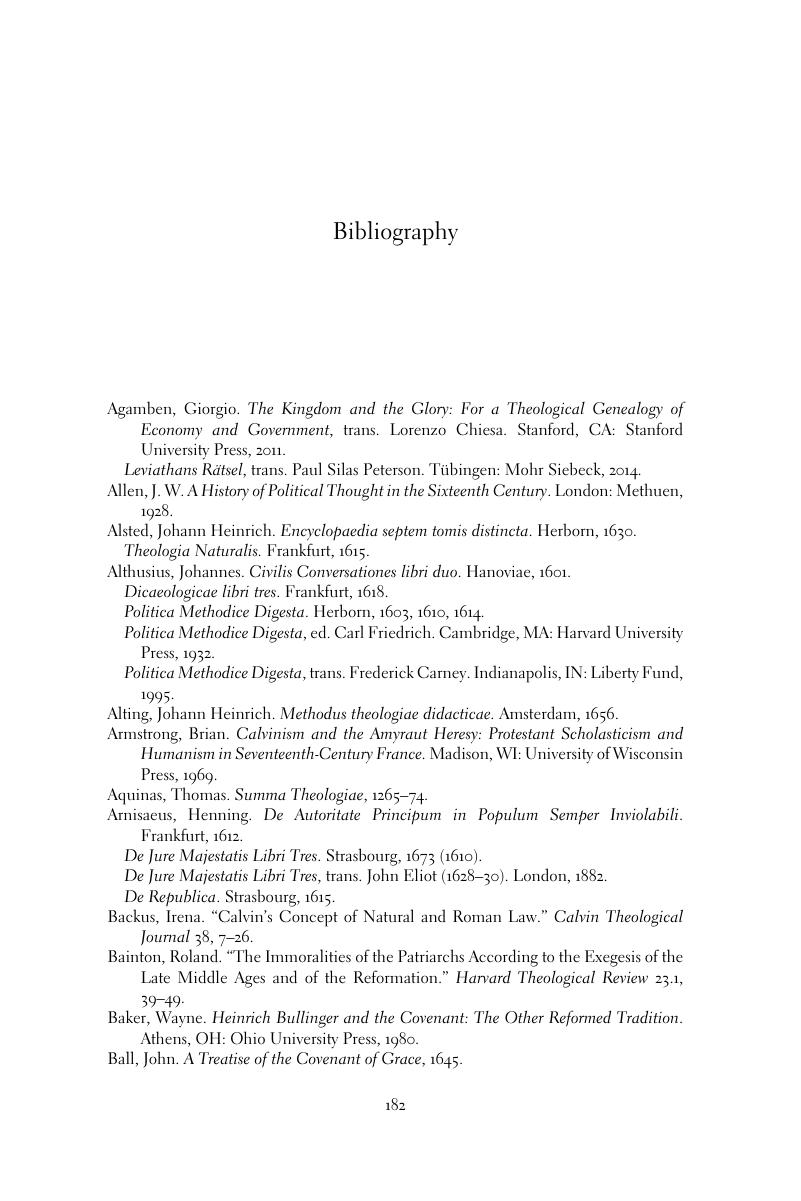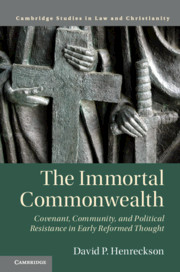Book contents
Bibliography
Published online by Cambridge University Press: 24 June 2019
Summary

- Type
- Chapter
- Information
- The Immortal CommonwealthCovenant, Community, and Political Resistance in Early Reformed Thought, pp. 182 - 198Publisher: Cambridge University PressPrint publication year: 2019



